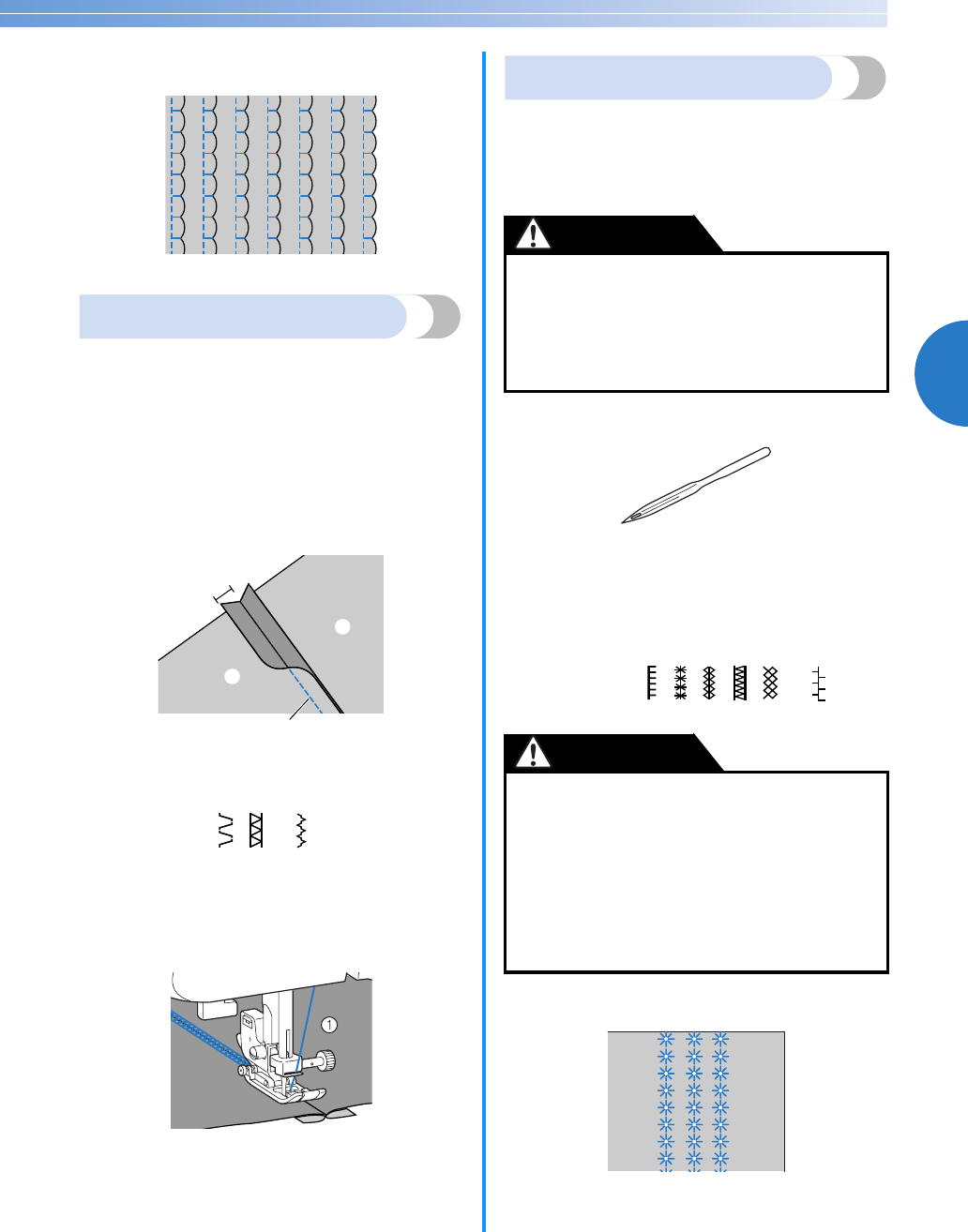
51
3
e
Unfold the fabric, and then iron the tucks
down to one side.
Joining
Decorative bridging stitches can be sewn over the
seam allowance of joined fabrics. This is used when
making a crazy quilt.
a
Attach zigzag foot “J”.
b
Sew together the right sides of the two pieces
of fabric, and then open up the seam
allowances.
a Wrong side of fabric
b 6.5 mm (1/4 inch) seam allowance
c Straight stitch
c
Select stitch , or .
d
Turn the fabric over so that the right side
faces up, and then sew over the seam with the
center of the presser foot aligned with the
seam.
a Right side of fabric
Heirloom stitching
When sewing with the wing needle, the needle holes
are enlarged, creating a lace-like decorative stitch.
This is used to decorate hems and tablecloths on thin
or medium weight fabrics in addition to plain weave
fabrics.
a
Insert the wing needle.
• Use a 130/705H 100/16 wing needle.
• For details on inserting a needle, refer to
“Replacing the needle” (page 21).
b
Attach monogramming foot “N”.
c
Select stitch , , , , or .
d
Start sewing.
1
1
2
3
● The needle threader cannot be used with the
wing needle, otherwise the sewing machine
may be damaged. Manually pass the thread
through the eye of the needle from the front
to the back. For details, refer to “Upper
threading” (page 16).
● Select a stitch width of 6.0 mm (15/64 inch)
or less, otherwise the needle may bend or
break.
● After adjusting the stitch width, slowly turn
the handwheel toward you
(counterclockwise) and check that the needle
does not touch the presser foot. If the needle
hits the presser foot, the needle may bend or
break.
CAUTION
CAUTION


















